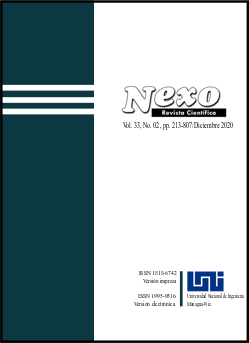Forecast of the efficiency confidence interval of decision-making units in data envelopment analysis
DOI:
https://doi.org/10.5377/nexo.v33i02.10782Keywords:
Data Envelopment Analysis, Forecast, Time Series, Probability Programming, Efficiency, Monte Carlo Simulation, Confidence IntervalAbstract
Data Envelopment Analysis (DEA) is a well-known method for calculating the efficiency of Decision-Making Units (DMUs) based on their inputs and outputs. When the data is known and in the form of an interval in a given time period, this method can calculate the efficiency interval. Unfortunately, DEA is not capable of forecasting and estimating the efficiency confidence interval of the units in the future. This article, proposes a efficiency forecasting algorithm along with 95% confidence interval to generate interval data set for the next time period. What’s more, the manager’s opinion inserts and plays its role in the proposed forecasting model. Equipped with forecasted data set and with respect to data set from previous periods, the efficiency for the future period can be forecasted. This is done by proposing a proposed model and solving it by the confidence interval method. The proposed method is then implemented on the data of an automotive industry and, it is compared with the Monte Carlo simulation methods and the interval model. Using the results, it is shown that the proposed method works better to forecast the efficiency confidence interval. Finally, the efficiency and confidence interval of 95% is calculated for the upcoming period using the proposed model.
Downloads
Downloads
Published
How to Cite
Issue
Section
License
Copyright (c) 2021 Array

This work is licensed under a Creative Commons Attribution 4.0 International License.
The authors who publish in Nexo Scientific Journal agree to the following terms:
- Authors retain the copyright and grant the journal the right of the first publication under the license Creative Commons Attribution License https://creativecommons.org/licenses/by/3.0/, which allows others to share the work with a recognition of the authorship of the work and the initial publication in Nexo Scientific Journal.
- Authors may separately establish additional agreements for the non-exclusive distribution of the version of the work published in the journal (for example, in an institutional repository or a book), with the recognition of the initial publication in Nexo Scientific Journal.
- Authors are allowed and encouraged to disseminate their works electronically (for example, in institutional repositories or in their own website) before and during the submission process, as it can lead to productive exchanges, as well as earlier and greater citation of published works.











